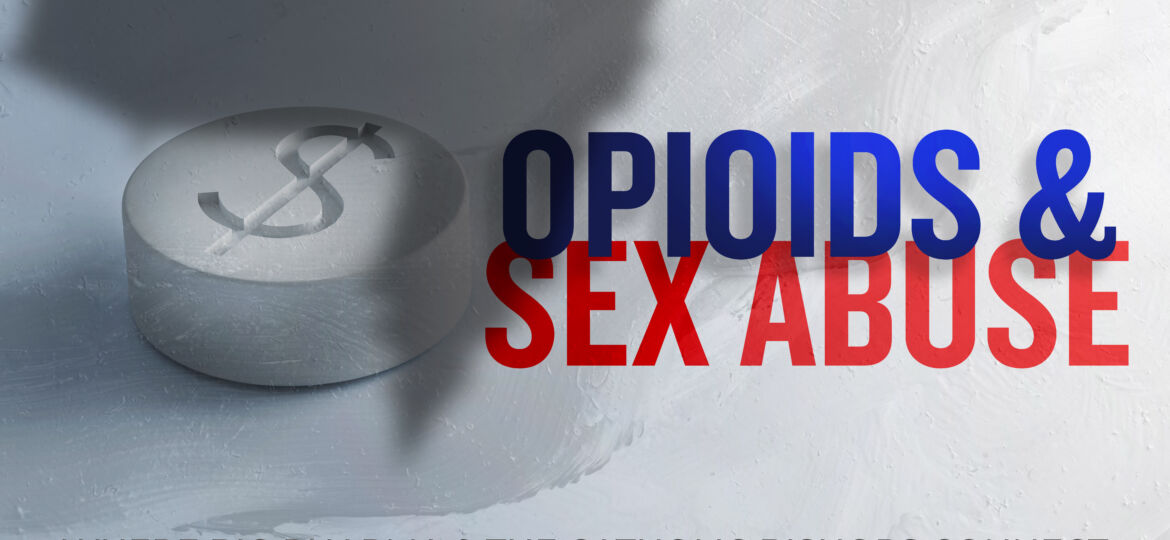Opioids & Sex Abuse – Where Big Pharma & the Catholic Bishops Connect
Purdue Pharma, the disgraced drug company that spawned the opioid epidemic with its drug OxyContin, had an unlikely ally in its recent appearance before the United States Supreme Court.
And who was the unlikely ally? None other than the U.S. Conference of Catholic Bishops, the USCCB.
The question before the court is this: should the Sackler family, who owned and managed Purdue Pharma (including manufacturing and marketing of OxyContin with full knowledge that the drug was addictive and dangerous), be forced into Purdue’s bankruptcy proceedings to help pay the billions owed to victims?
The Court’s decision could be one of the most important decisions in bankruptcy law in the last 30 years.
Why does the USCCB care about the Sacklers?
The USCCB has no interest or stake in Purdue or the Sacklers, but one element of Purdue’s ongoing bankruptcy could have a chilling effect on the Catholic Church’s continued exploitation of bankruptcy law: whether or not third parties can be released from the bankruptcy and given immunity from further civil lawsuits.
In the case of Purdue, the members of the Sackler family, who have not declared bankruptcy, want to be released from the proceedings. In an Amicus Curiae legal brief filed last week with the court, the Bishops compared the Sackler family to Catholic parishes and schools, third parties that are habitually excused from bankruptcy proceedings when Catholic dioceses use Chapter 11 to avoid child sexual abuse civil trials.
A small portion of the claimants in the Purdue Pharma case, as well as the U.S. Trustee, believe that the Sacklers should not be given immunity.
If the Sacklers are not allowed to be excused from the bankruptcy, it could have a chilling effect on the Catholic Bishops. Catholic parishes and schools (often the actual crime scenes in child sexual abuse and cover-up civil cases) would be open to financial liability for crimes committed against children. While a decision to not excuse the Sacklers from bankruptcy could delay the Purdue Pharma settlement, it could stop Catholic Bishops from using Chapter 11 to revictimize survivors and stop the civil justice process.
“To boost profits, the Sackler family lied about the dangers of opioids. To boost power and prestige, the Catholic hierarchy lied about its clerics, thousands of them, who repeatedly committed and concealed dangerous crimes against kids…The lies may change, but their intentions never do.” – Jeff Anderson
The Amicus Curiae brief, written on behalf of the USCCB by their legal counsel, is a patronizing document that continues to trot out well-worn myths that the Catholic Bishops have been trying to spin as truth for decades. They throw out terms like “meritless claims,” “decades-old cases without evidence or witnesses,” and their desire for “reconciliation” as reasons that they need to use Chapter 11 for “fair” resolution of cases. However, we know the only reason that dioceses use Chapter 11 is because of the overwhelming evidence of wrong-doing that is exposed when states adopt statute of limitation reform and give survivors the chance to use the civil courts to expose crimes.
The Federal Bankruptcy Court is no place for survivors of child sex crimes. Survivors are reduced to paperwork, are forced out of the civil court system, become subject to years-long delays, and become targets in a PR offensive that allows the Catholic Church to “cry poor.”
The system needs to be fixed and made trauma-informed, so that survivors get the justice that they have fought so long to attain.
We will await the court’s decision.


